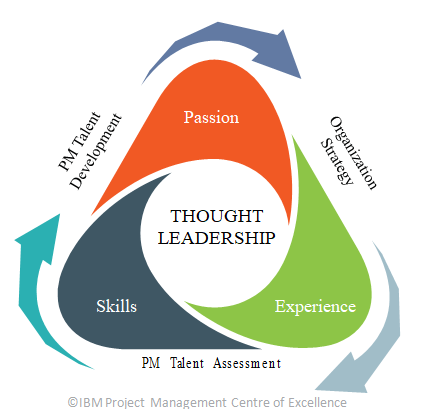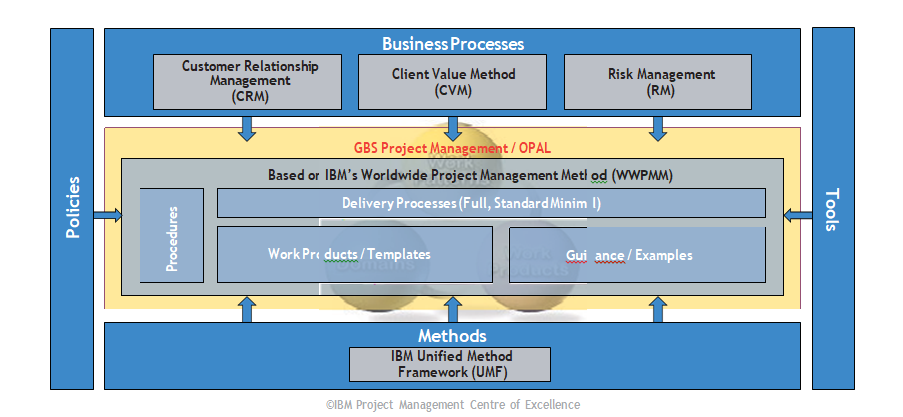IBM Strengthens Focus on Professional Project Management
If you are searching for IBM Project Management Case Study Analysis by Experts. Assignmenthelpaus.com provide the best assignment writing service at an affordable price. Our Professional experts assist you in completing your assignment work. Our Online Assignment Service is the best in Australia. If you need IBM Strengthens Focus on Professional Project Management, then connect with us.

Assignment Details:
- Words: 1000
IBM has made an ongoing commitment to project management excellence. The journey began in the early
to mid-nineties when we transformed our culture and support systems to improve business posture. The company took bold steps in how to organize, execute and track work. We also began to group work into projects that produced services, products and solutions for our customers. This approach was applied to both external and internal development projects.
| IBM’s Project Management Center of Excellence:
l Helps the organization become a project-based enterprise that applies and integrates project management disciplines into all core business processes and systems; l Drives consistent and broad use of project management disciplines, including the formalization of the position of project manager throughout organization |
On February 5, 1997, the IBM Project Management Center of Excellence (PMCOE) was born with a charter to drive IBM’s transition to and support of professional project management worldwide, a competency deemed necessary to ensure effectiveness and success within a matrix enterprise.
Since its inception, the IBM PMCOE—working hand in hand with all business units worldwide—ensured that we became a project-based enterprise that applies and integrates project management disciplines into all core business processes and systems.
The initial charter drove more consistent and broader use of project management disciplines, including the formalization of the position of project manager throughout our organization.
Over time, the IBM PMCOE has driven the transformation and integration of project management into the fabric of the organization. Our professionals are more experienced and capable in their abilities to get their work done using project management disciplines.
Today’s World
In addition to being one of the world’s largest IT and consulting services company, IBM is a global business and technology leader, innovating in research and development to shape the future of society at large.
Today, we see ourselves as much more than an Information Technology Company. In April 2016, IBM’s Chairman, President and CEO, Ginni Rometty described the dawn of a new era, shaped by AI computing and cloud platforms. She described how the IT industry is fundamentally re-ordering at an unprecedented pace. In response, IBM is becoming much more than a “hardware, software, services” company. We are emerging as an AI solutions and cloud platform company.
Fundamental to the success of this transformation is the skills and abilities of our workforce. We are being challenged to be relevant to the marketplace of tomorrow. As a focus on continuous learning, we have Think40 where we are encouraged to spend 40 hours every year to upskill.
We are encouraged to have a point of view, be socially eminent and be comfortable in a customer facing situation. We are provided with the tools and techniques, including new ways of learning such as video, gaming and interactive Our PM curriculum is delivered globally and across all lines of business, helping to drive a consistent base of terminology and understanding across the company. And our project and program management profession has established an end-to- end process to “quality assure” progress through the project management career path.
©IBM Project Management Centre of Excellence eLearning techniques to enable this objective. New phrases and concepts are creeping into the everyday vocabulary of our teams, such as agile, design thinking, calculated risk-taking and better collaboration.
IBM’s PMCOE is no exception to this transformation—and 2017 marked the 20th anniversary of the Centre of Excellence, which clearly shows our ongoing commitment to project management as a key profession within the corporation.
Our Mission
The key cornerstones to our mission are:
Talent Development
Our project management professional development is anchored by career path framework and supporting education curriculum (see Figure 1). We are committed to improving our project management capabilities by growing and supporting a robust, qualified project management profession and by providing quality project management education and training to its practitioners.

Figure 1
Tools and Methodology
We developed the Worldwide Project Management Method (WWPMM), which establishes and provides guidance on project management practices for defining, planning, delivering and controlling a wide variety of projects and programs (see Figure 2).
These practices are supported by tools and techniques for project planning, work plan generation, estimating costs and schedules, time tracking and status reporting.
Keeping with the need to be flexible, the project management system templates and work products can be tailored to meet geography, business line, or client specific requirements while still maintaining our commitment for one common project management method.

Certification
Enhancing the integration of the methods, business processes and policies is the ongoing development of our project management professionals through education and certification.
The project management professional development initiative includes worldwide leadership of our project management profession, its qualification processes, our relationship with PMI, and project management skills development through education and mentoring. These programs are targeted to cultivate project and program management expertise and to maintain standards of excellence within the profession.
We recognize the value of the services and certifications offered by PMI and use their certification types at the heart of our certification process to test and validate our project management knowledge.
Our project and program management profession has established an end-to-end process to “quality assure” progress through the project management career path. This process is called “qualification” and it achieves four goals:
- Provides a worldwide mechanism that establishes a standard for maintaining and enhancing our excellence in project and program management. This standard is based on demonstrated skills, expertise and success relative to criteria that are unique to the profession.
- Ensures that consistent criteria are applied worldwide when evaluating candidates for each profession milestone.
- Maximizes customer and marketplace confidence in the consistent quality of our project management professionals through the use of sound project management disciplines (i.e., a broad range of project and program management processes, methodologies, tools and techniques applied by project management professionals in IBM).
- Recognizes our professionals for their skills and experience.

Figure 3
©IBM Project Management Centre of Excellence
Our project and program management profession career path allows employees to grow from an entry level to an executive management position. Professionals enter the profession
at different levels depending upon their level of maturity in project management. Validation of a professional’s skills and expertise is accomplished through the qualification process. The qualification process, outlined in Figure 3, is composed of accreditation (at the lower, entry levels), certification (at the higher, experienced levels), recertification (to ensure profession currency), and/or level moves (moving to a higher certification milestone).
Meeting the Challenge
When we step back and look at the scale and diversity of the tens of thousands of concurrent projects being managed by our community, it can be truly staggering. We are not only asking our project managers to manage across the traditional boundaries of time, budget and resourcing, but, we now need to understand and be able to clearly articulate the following complexity factors;
- Emerging technologies (e.g. AI, Internet of Things, cloud)
- Traditional, agile and hybrid project delivery methods
- Industry specific solutions (e.g. energy, automotive, public)
- Platform specific solutions (e.g. as a service offerings)
- Client specific solutions (e.g. customized solutions, integration across multiple diverse legacy environments)
The majority of our teams, as well as our client’s teams, are invariably global in nature, requiring all of us to become experts in managing multi-cultural and diverse teams.
As our transformation journey continues and the rate of change in the industry continues at a pace, there are a number of fundamental questions we are asking ourselves in the PMCOE. For example:
- How do we deal with the various complexity factors described above such as emerging technologies, enterprise structure and specific solutions?
- Do our methods, processes and tools need to be customized to meet each of the complexity factors, or can we deliver a one-size-fits-all solution to support our project management community?
- How can we leverage our AI and automation technologies to enhance and enrich the experience of our project managers?
The Future
The IBM PMCOE is excited at the challenges and opportunities that the future holds. We will continue to adapt and evolve the methods, tooling, education and profession support we provide to the global project manager community.
We eagerly await our 2027 reflection where we envision that the emerging technologies of today will become commonplace and the IBM PMCOE will still be as relevant, if not more so, to the IBM organization as it is today.
This article also leverages material created by Deborah Dell, Manager and Program Director for IBM Project Management Global Center of Excellence from 1999 – 2015.

For REF… Use: #getanswers2002032
